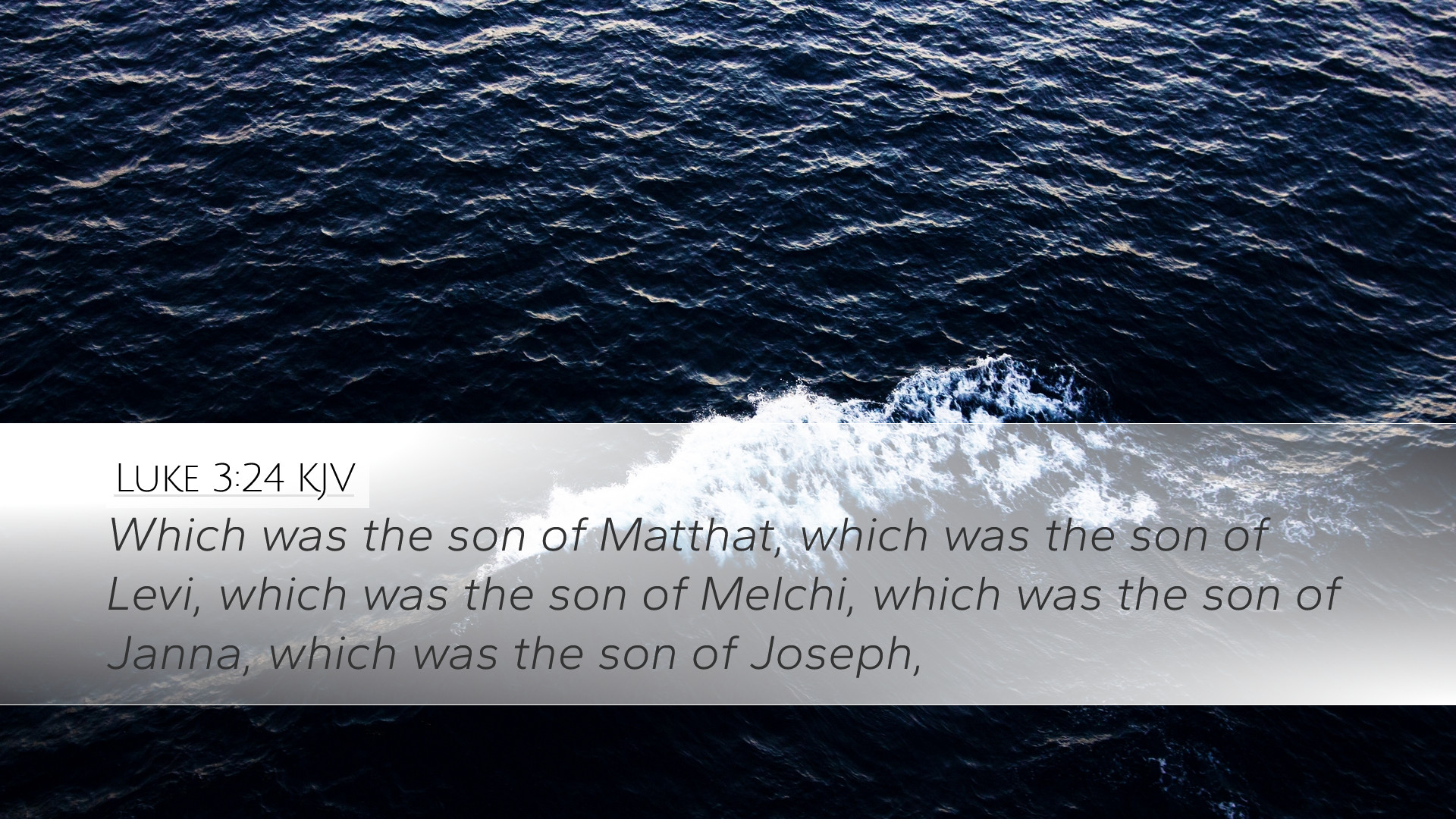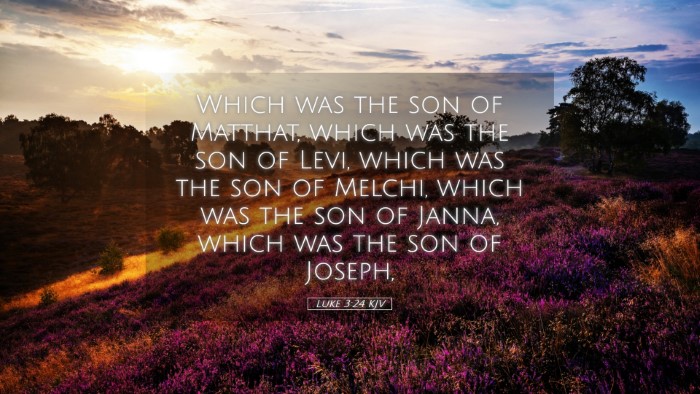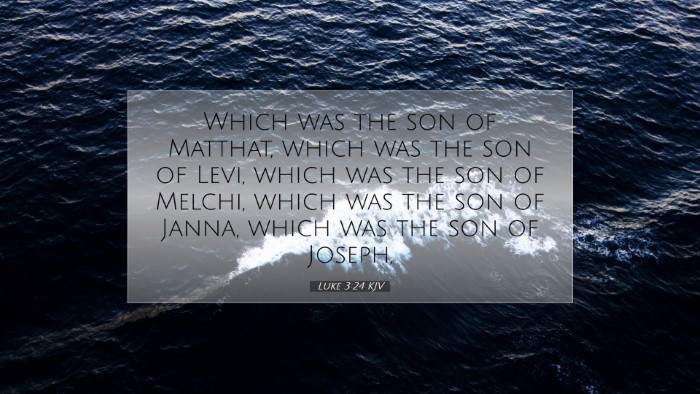Commentary on Luke 3:24
Verse: "The son of Mattathias, the son of Amos, the son of Nahum, the son of Esli, the son of Naggai."
Introduction
In Luke 3:24, we encounter a portion of the genealogy of Jesus Christ that traces His lineage back through historical and theological contexts. Genealogies in Scripture serve not merely as lists of names but also as profound reflections of God's covenantal promises and the fulfillment thereof in Christ. This commentary integrates insights from Matthew Henry, Albert Barnes, and Adam Clarke to deepen our understanding of this verse for theologians, pastors, and students of Scripture.
Historical Significance
The genealogy presented in Luke serves a critical role in establishing the credibility of Jesus as the Messiah. Luke's account is unique, providing a record that connects Jesus not only to David but also to Adam, showcasing the universal implications of Jesus' mission. The naming of specific ancestors serves to link Jesus with significant figures in Israel's history, thus reinforcing His divine legitimacy.
Matthew Henry's Insights
Matthew Henry emphasizes that genealogies reveal both Christ's humanity and divinity. By tracing Jesus' lineage through Joseph, the legal father, Henry notes this lineage suggests a fulfilling of the prophecies regarding the house of David. While this list of names may seem monotonous, Henry suggests a careful reading promotes appreciation for God's sovereign hand in history, as every name reflects His plan culminating in Jesus Christ.
Albert Barnes' Commentary
Albert Barnes elaborates on the significance of the names mentioned in this lineage. He points out that Mattathias, Amos, Nahum, Esli, and Naggai, while not as prominent as others within biblical narratives, still play crucial roles in revealing God’s providential work among His people. Barnes suggests that the inclusion of lesser-known figures demonstrates God's ability to use ordinary lives for extraordinary purposes. The message is clear: every member of this lineage contributed to the forthcoming of Christ's earthly ministry.
Adam Clarke's Observations
Adam Clarke distinguishes the differences between Matthew's and Luke's genealogical accounts. Clarke suggests Luke's emphasis on the biological lineage through Mary, albeit through legal acknowledgment via Joseph, establishes an essential theological truth about Christ's humanity while affirming His messianic origins. The specific reference to names like Naggai serves to illustrate God's faithfulness in preserving a remnant through which Christ would ultimately be born.
Theological Reflections
The genealogies serve several critical theological purposes:
- Fulfillment of Prophecy: The names listed substantiate the long-awaited Messiah who fulfills Old Testament prophecies, particularly those regarding lineage traced back to David and Abraham.
- Challenge of Social Norms: The inclusion of diverse names also reflects God's grace in bringing together people of varied backgrounds as part of His redemptive plan.
- Identity and Belonging: The genealogy connects believers to their spiritual heritage, affirming the continuity of God’s covenant love throughout generations.
Application for Pastors and Scholars
For pastors, the genealogy in Luke 3:24 challenges the notion that lesser-known figures are without significance in God’s plan. This theological assertion encourages congregations to recognize that their heritage in faith, regardless of perceived magnitude, plays an essential role in God's intricate narrative of salvation. It underscores the responsibility of pastoral leadership to highlight and honor every story within the broader context of the community.
For scholars, this verse opens doors for deeper exploration into the literary structure of genealogies in biblical texts, offering insight into how various gospel writers account for their interpretations of Jesus’ identity. The names may invite further study into their meanings, cultural significance, and the broader implication of God’s redemptive history.
Conclusion
Luke 3:24 may appear as a mere list of names on the surface, yet its theological weight is profound. Rooted in historical and spiritual significance, it affirms God's faithfulness across generations and His ultimate plan of redemption through Jesus Christ. The insights from various commentaries remind us that every individual, no matter how insignificant they may seem, is part of God's grand narrative and plays a vital role in His kingdom.


